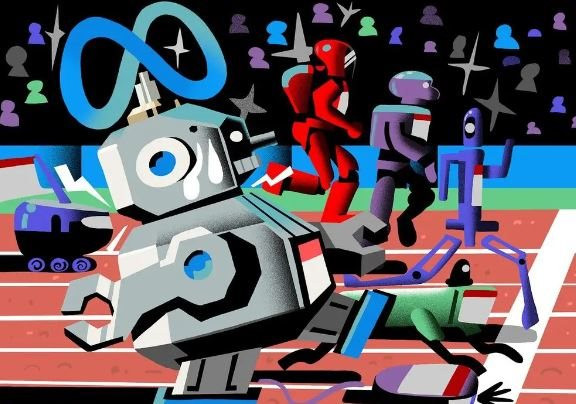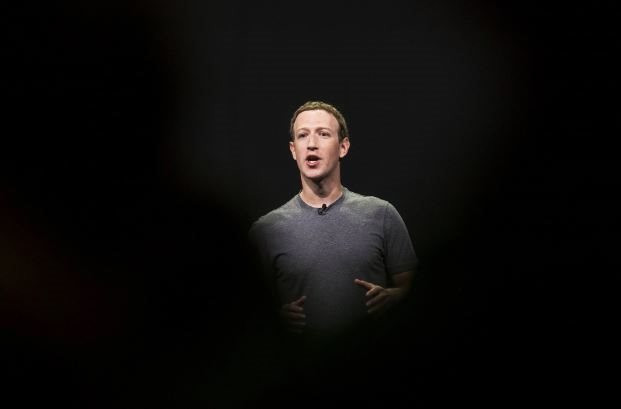Chatbot Mark Zuckerberg far behind ChatGPT: When asked ‘who is running Silicon Valley’, Galactica replied disappointingly
- Tram Ho

Two weeks before ChatGPT came out and wowed the world, Meta, the parent company of Facebook, WhatsApp and Instagram, unveiled a chatbot of its own. It’s called Galactica, designed for scientific research, and can write papers, solve math problems, and write code.
Like ChatGPT, Galactica also sometimes misspelled historical dates and fabricated stories that weren’t true. When asked who runs Silicon Valley, Galactica replied, “Steve Jobs.”
However, unlike OpenAI – the company that created ChatGPT, Meta faced a lot of criticism because Galactica – a large language model for the scientific field, trained on 48 million data on scientific articles courses, websites, textbooks, lecture notes and encyclopedias. Meta advertises Galactica as a “shortcut” for researchers and students, with the ability to “summarize academic papers, solve math problems, write Wiki articles, generate scientific code, annotate molecules…” .
However, like all other language models, Galactica is just a bot that cannot distinguish fact from fiction. Within hours, scientists were sharing the misleading results and its inaccurate information on social networks.
“I have mixed feelings about this new endeavor. In the demo rollout, they look amazing, magical, and smart. However, people don’t seem to fully understand the principle, that such things can’t work the way we exaggerate,” said Chirag Shah at the University of Washington, who studies search technology. know.
According to Michael Black, director of the Max Planck Institute for Intelligent Systems, Germany, which specializes in science, “In any case, the misinformation sounds true and well-founded. I think this is very dangerous.”

Chatbot Mark Zuckerberg is far behind ChatGPT
“Don’t trust it too much. Basically, just think of it as an advanced Google search for rudimentary secondary information!” says Miles Cranmer, an astrophysicist at Princeton.
According to MIT Technology Review, Galactica also has many holes in information processing. When asked to create text on certain topics, such as “racism” and “AIDS,” the model responded: “Sorry, your request did not pass the content filter. ours. Try again and remember this is a scientific language model.”
This is tantamount to an admission that language models cannot, or frankly, can never do everything. “Language models don’t really understand everything, except the ability to capture a pattern of word sequences and output it probabilistically. It gives a false sense of intellect,” said one expert.
For nearly a decade, Meta has spent billions of dollars building AI, while at the same time making it a mission to be at the forefront. However, this giant seems to be “abandoned” by Silicon Valley engrossed in ChatGPT – a tool that ‘answers questions like a real person’, can present logical meanings, has depth and extremely fluent, even with complex questions. It can even write scripts and essays.
Many giants then frantically joined the race. Google said it will soon release an experimental chatbot called Brad, and Microsoft revealed a new search engine powered by generalized AI.
Meanwhile, Meta’s efforts were hindered by the label “spreading false information”. Burdened with responsibility for billions of users, it cannot continue to launch an online chatbot and start a lot of controversy.
“OpenAI and other small companies are in a better position to release chatbots,” said Chirag Shah, a University of Washington professor who discovered vulnerabilities in Galactica and ChatGPT.

In recent years, Meta has shifted its focus to the metaverse because it believes it will be the next big revolution
In recent years, Meta has shifted its focus to the metaverse, believing that this will be the next big revolution. It remains unclear how the company can deliver AI products that integrate within existing services the way users want.
However, that doesn’t mean Meta doesn’t try. According to Irina Kofman, Senior Director of Product Management for General AI, Meta is accelerating the launch of AI products. Zuckerberg also directly participates in directing weekly meetings with leading experts and researchers. Responding to how Meta could implement chatbots and other generalized AI technologies, Dr. LeCun said they could help small businesses create Facebook ads.
“One of my goals for Meta is to be a leader in synthetic artificial intelligence,” said Mark Zuckerberg.
Meta is not the only company to support the view that the language model can replace the search engine. For many years, Google promoted the PaLM language model as an information retrieval product. In 2016, Microsoft also launched a chatbot called Tay on Twitter, but was forced to take it down after 16 hours because Twitter users turned it into a racist and homophobic tool.
“The big tech companies will continue to do this, and take my word for it, they won’t stop thinking they can. They think this will be the future of the world of access to information, even if no one asks for it,” said Chirag Shah at the University of Washington, who studies search technology.
By: The New York Times, MIT Technology Review
Source : Genk
